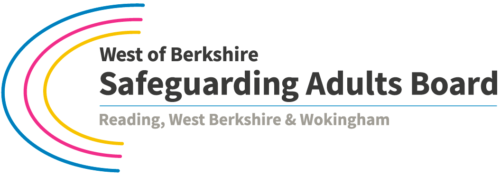Whistleblowing
Whistleblowing is an essential part of safeguarding adults: all adults deserve to be treated with dignity and respect at all times. In circumstances where they are not being treated this way, whistleblowing ensures that the malpractice is acted upon and that adults at risk receive the care and support they deserve.
Is a worker who reports certain types of wrongdoing. This will usually be something witnessed at work – though not always. The wrongdoing disclosed must be in the public interest. This means it must affect others, for example the general public.
A whistleblower is protected by law and should not be treated unfairly or lose their jobs because they ‘blow the whistle’.
A concern can be raised at any time about an incident that happened in the past, is happening now, or when it is believed it happen in the near future.
Whistleblowers are protected if they are a worker, for example:
- an employee, such as a police officer, NHS employee, office worker, factory worker
- a trainee, such as a student nurse
- an agency worker
- a member of a Limited Liability Partnership(LLP)
Citizens’ Advice should be able to advise if a person will be considered as a whistleblower.
- a criminal offence, for example fraud
- someone’s health and safety is in danger
- risk or actual damage to the environment
- a miscarriage of justice
- the company is breaking the law, for example does not have the right insurance
- you believe someone is covering up wrongdoing
Personal grievances are not covered by whistleblowing law, unless your particular case is in the public interest.
Report these under your employer’s grievance policy.
Contact the Advisory, Conciliation and Arbitration Service (Acas) for help and advice on resolving a workplace dispute.
The employer – they may have a whistleblowing policy explains what to expect if a concern is reported to them. A concern can still be reported even if they do not have a policy. If the concern cannot be reported to the employer such as: getting legal advice from a lawyer or reporting to a prescribed person or body that deals with the issue being raised, such as the Care Quality Commission (CQC).
A concern can be raised anonymously, but the concern may not be able to be investigated further if not all information required is provided. A whistleblower can provide their name but request confidentiality and every effort should be made to protect their identity.
What will happen after the concern is raised, the concern will be considered and decision made if any further action is required. The whistleblower does not have a say in how the concern is dealt with, but can be kept informed about what action, dependent on the confidentiality requirements with others involved.
If the whistleblower is not satisfied with how the concern and they believe their concern was not taken seriously or the wrongdoing is still occurring they can: tell someone else such as a more senior member of staff or prescribed person or body.
- A receptionist in a care home, is aware that the manager of the care home is not reporting safeguarding concerns to avoid an inspection.
- A domiciliary care worker is logging incorrect times on timesheets to finish work early, the manager has been informed but has not taken any action.
- A manager of a ward is documenting that ward staff have received mandatory training when they have not.
- A care worker in a supported living service is aware that there are insufficient staff on shifts for the level of need that residents present. The care worker is aware the dependency tool indicates at least 1 or 2 additional staff members are required to safely manage the shift.
- A manager is giving another worker the best shifts because they are friends.
- An employee didn’t get the promotion they felt they deserved.
- Another member of the team keeps prank calling another staff member and the manager is not dealing with it.
- A member of staff is not included in relevant meetings because the chair of those meetings doesn’t like them.
- This learning brief has been written based on the: Whistleblowing for employees: Who to tell and what to expect – GOV.UK (www.gov.uk)
- Protect – Speak up stop harm – Protect – Speak up stop harm (protect-advice.org.uk) – Protect aims to make whistleblowing work for individuals, organisations and society.
- Advisory, Conciliation and Arbitration Service (Acas)– Acas provides free and confidential advice to employers, employees and their representatives on employment rights, best practice and policies, and resolving workplace conflict.
- West of Berkshire Safeguarding Adult Board Website
- Care Quality Commissions Policy in regards to whistleblowing
Published September 2023, by the Communication and Publicity Subgroup.
